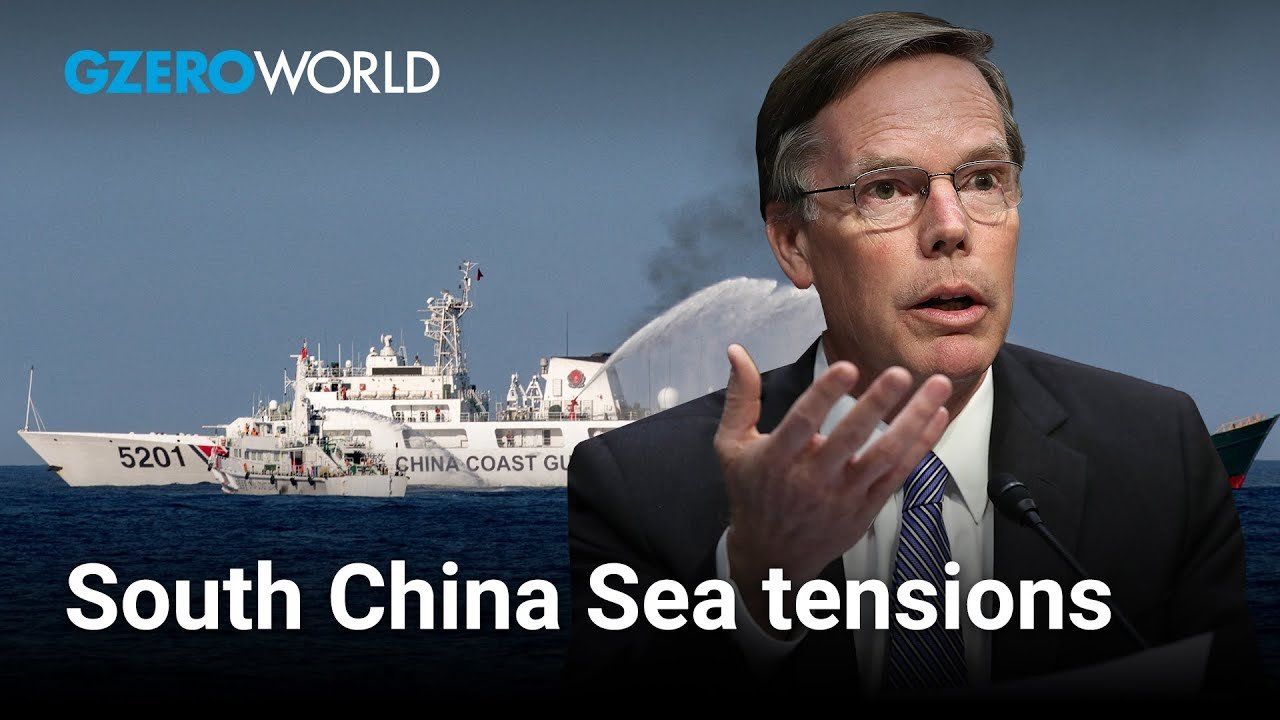China shouldn’t “coerce or intimidate” the Philippines in the South China Sea, says US Ambassador
April 17, 2024

China shouldn’t “coerce or intimidate” the Philippines in the South China Sea | GZERO World
Tensions are rising between China and the Philippines over control of the South China Sea, which Beijing sees as its territory, and Manila as its exclusive economic zone. On GZERO World with Ian Bremmer, US Ambassador Nick Burns explained the US position that it is concerned about China’s aggression in the South China Sea, particularly at Second Thomas Shoal, a submerged reef where Manila deliberately beached a ship in 1999 and has used as a military outpost ever since.
“China should not seek to coerce or intimidate the government of the Philippines at Second Thomas Shoal,” Burns stresses, “The Philippines has an absolute right to resupply their forces.”
Burns emphasizes broad international support for the Philippines’ rights in the area, referencing the 1951 Mutual Defense Treaty between Washington and Manila. Tensions in the region have escalated sharply since Chinese and Philippine coast guard vessels collided in early March, injuring four Filipino crew members. Burns says China needs to act responsibly and commit to a peaceful resolution on the issue.